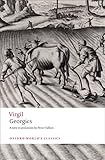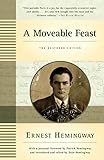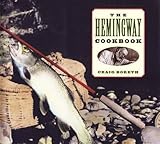1.
We crave what we lack, and most professional desk-sitters lack the satisfaction of producing something tangible. We cannot eat or wear or hold the sentences we read or write or analyze. Money—if we’re lucky—is the only thing we make.
People cope in different ways. Sometimes, while reading, I keep a knitting project nearby just to give my hands some work to do. And I like to mark the end of my working days by cooking dinner—a form of labor in its own right, certainly, but also, in my circumstances, a luxurious re-entry from a world of glowing screens and uniform pages into the material world of smells, textures, and colors.
A lot of writers seem to yearn for the sensory immediacy of doing over thinking. You find evidence of this tendency in those many moments in poems and novels that dwell not on the thoughts of characters but on their mundane actions. Read closely enough and you’ll see that the writer might actually be instructing you on how to complete a practical task.
 This didactic impulse has a long history. Hesiod, a Greek poet who lived around the time of Homer, included in his poem “Works and Days” such salient advice as “remember always to work” and “You really need two plows, and they can both be homemade,” and “Don’t piss standing up while facing the sun.” His Roman counterpart Virgil responded a few hundred years later with the Georgics, a four-part poem that claims to be a farming guide and contains a memorable lesson on generating bees from a bull carcass (don’t try this at home).
This didactic impulse has a long history. Hesiod, a Greek poet who lived around the time of Homer, included in his poem “Works and Days” such salient advice as “remember always to work” and “You really need two plows, and they can both be homemade,” and “Don’t piss standing up while facing the sun.” His Roman counterpart Virgil responded a few hundred years later with the Georgics, a four-part poem that claims to be a farming guide and contains a memorable lesson on generating bees from a bull carcass (don’t try this at home).
In recent centuries, that explicitly imperative voice has lost popularity among Western writers. This has something to do with the rise of novels, in which narrators spend a lot more time observing characters than admonishing readers. At first, novelists could get around this inconvenience by writing their morals into preachy prefaces, but that custom also faded over time. Romanticism, with its emphasis on lyric self-expression, also helped quash the instructive literary spirit. But it was those grumpy high Modernists who outlawed the practice of literary teaching most fiercely: Literature is Art, and only Art! Art is Form, and only Form! Form sullied by Moral Instruction is…positively Victorian!
2. Or so the story goes. Yet practical lessons lurk even in the most quintessentially modern texts. Ernest Hemingway’s “Big Two-Hearted River,” the last story in his 1925 collection In Our Time, is essentially an instruction guide for camping and fishing. In it, Hemingway’s stand-in character Nick Adams goes on a solo fishing trip, seeking release from the past. The “hard work” of hiking to his campsite pleases him: “He felt he had left everything behind, the need for thinking, the need to write, other needs.”
Or so the story goes. Yet practical lessons lurk even in the most quintessentially modern texts. Ernest Hemingway’s “Big Two-Hearted River,” the last story in his 1925 collection In Our Time, is essentially an instruction guide for camping and fishing. In it, Hemingway’s stand-in character Nick Adams goes on a solo fishing trip, seeking release from the past. The “hard work” of hiking to his campsite pleases him: “He felt he had left everything behind, the need for thinking, the need to write, other needs.”
It is a great story, sparse and moving and so eminently close-readable that Hemingway might as well have wrapped it, tied it with a bow, and given it to the world’s English teachers for Christmas. Nick goes to the woods to recover from war trauma by fishing instead of thinking, and it sort of works, except everything in the woods reminds him of war. Even the grasshoppers he uses as trout bait act like angry little warriors.
When recovery succeeds, it comes from Nick’s ability to recreate the conditions he knew before the war by following simple instructions, like setting up a tent. Danger, in the form of thinking, arises when he runs out of things to do with his hands. And on the flipside, Hemingway craved engagement with the material world so keenly that he actually wrote instructions into the abstract world of fiction. The physical immediacy of the prose got me antsy when read the story recently: why was I sitting around reading? Why wasn’t I out doing all the things that Hemingway so clearly shows you how to do?
I became enamored with the idea of literature leaving the page and entering the world of things. Maybe that divide between mind and material didn’t have to be so absolute; maybe Hemingway stories had more in common with my bossy hat patterns and lentil recipes than I had realized. I decided to test the theory by treating “Big Two-Hearted River” like an instruction manual: I would cook every “recipe” it contains.
 It is all camp food, easier to prepare than to digest. There would be spaghetti and beans from a can, buckwheat pancakes, and onion sandwiches. Everything might have tasted better if I’d actually been camping. Hemingway surely would only have eaten these foods in the woods; in trendier locales, he was as snooty a gourmand as ever pranced the streets of Greenpoint. See A Moveable Feast for his Parisian memories of slurping top-notch oysters “with their strong taste of the sea and their faint metallic taste that the cold white wine washed away, leaving only the sea taste and the succulent texture.”
It is all camp food, easier to prepare than to digest. There would be spaghetti and beans from a can, buckwheat pancakes, and onion sandwiches. Everything might have tasted better if I’d actually been camping. Hemingway surely would only have eaten these foods in the woods; in trendier locales, he was as snooty a gourmand as ever pranced the streets of Greenpoint. See A Moveable Feast for his Parisian memories of slurping top-notch oysters “with their strong taste of the sea and their faint metallic taste that the cold white wine washed away, leaving only the sea taste and the succulent texture.”
But oysters à la Hemingway would have been too expensive and too effortless: you go to Paris, you demand douze huitres, you wash them down with exquisite Sancerre.
I wanted to put in some work. In Hemingway’s story, most of the work comes before the first meal – a supper of pork and beans mixed with canned spaghetti, bread, coffee, and canned apricots. Nick huffs and sweats his way to the river, and then he is very strict about setting up camp and cooking carefully before he dives into his bubbling mess of carbohydrates. I mimicked his discipline by eating lightly on the day of the experiment and spending an extra half hour at the gym. My boyfriend came over right after his usual 12-mile run. Yes, you read that right. He has a sedentary, brain-centric job too, and if mine leaves me needing to make, his leaves him needing to move.
He was already very hungry when he arrived, and I still had to take a shower. He wanted a snack but I wanted authenticity. We compromised on water and a mug of tea. I was pretty hungry too. The thought of dinner-from-a-can had turned my stomach when I was buying the ingredients, but now it was starting to sound pretty good.
I cooked out of my kitchen, not the woods, but I did at least empty the cans of spaghetti and beans into the good old pot that saw me through my more adventuresome backpacking days. Its warped base recalls the many meals it held, precariously, over my feisty little propane stove. Even back then I wasn’t as hardcore as Nick, who cooks over a real campfire. And I cheated a little bit, replacing pork and beans with baked beans to avoid meat.
But the neon-bright, all-American glop of sugar, salt, and acid that was soon burbling on my stove must have looked a lot like Nick’s. My boyfriend watched skeptically as I poured the steaming mix into our bowls. I even topped mine with an artistic splurt of ketchup, as prescribed by the story—more sugar, salt, and acid. We rounded out the meal with a side of bread for sopping up the sauce, because Dr. Atkins wasn’t born until 1930 so we could have as many carbohydrates as we wanted. (In a concession to 2014 tastes, the bread was homemade and whole grain.)
It was perfect workout recovery food, and the first few bites didn’t taste so bad. Intensely tomatoey, extremely sweet, salty, and tart. We were really hungry. We could appreciate the meal, even if we couldn’t approach Nick’s level of enthusiasm: “He took a full spoonful from the plate. ‘Chrise…Geezus Chrise,’ he said happily.”
Pretty soon, my lips were puckering with the tartness. I fobbed the rest of my plate off on my boyfriend and urged him to eat what was left in the pot, too. He almost made it. We couldn’t bear to face the super-sweet canned peaches. After dinner, we both buzzed with sugar highs as strong as any third grader’s and couldn’t stay still. That phase lasted about ten minutes. Then we felt quite ill and went to bed.

3.
The next morning, it was time for pancakes. Here is Hemingway’s buckwheat pancake recipe from “Big Two-Hearted River”:
Rapidly he mixed some buckwheat flour with water and stirred it smooth, one cup of flour, one cup of water. He put a handful of coffee in the pot and dipped a lump of grease out of a can and slid it sputtering across the hot skillet. On the smoking skillet he poured smoothly the buckwheat batter. It spread like lava, the grease spitting sharply. Around the edges the buckwheat cake began to firm, then brown, then crisp. The surface was bubbling slowly to porousness. Nick pushed under the browned under surface with a fresh pine chip. He shook the skillet sideways and the cake was lose on the surface. I won’t try and flop it, he thought. He slid the chip of clean wood all the way under the cake, and flopped it over onto its face. It sputtered in this pan.
There is so much to love about this paragraph, as a paragraph. This time around, I got most excited about what happens to the word “buckwheat.” It occurs exactly three times and modifies three different nouns – first “flour,” then “batter,” then “cake” – effectively echoing the narrative arc of the paragraph. I couldn’t question Hemingway’s mastery of prose. His pancake recipe inspired less confidence. It went against all of my pancake-making instincts, and I have developed a lot of those. I love making pancakes and eating pancakes and I have experimented with a whole internet-full of recipes over the years. Plain, blueberry, oatmeal, vegan, zucchini, whole wheat, apple, yeasted, carrot, cornmeal, sweet potato. All these pancakes share traits that Nick’s flour-and-water version lack: they include something to provide flavor (salt, sweetener, fruit, vanilla), a binder (usually egg), and most importantly leavening (baking powder, soda plus acid, yeast).
I thought maybe buckwheat flour had some magical property that would create perfect pancakes out of almost nothing. It did not. The flour was a pretty pearly gray, but the batter looked dead and gloppy and the cakes did not “bubble to porousness” in the skillet. They did not bubble at all. They were like thick buckwheat tortillas, but too stiff to fold. I served them, as per the story’s recommendation, with apple butter and “coffee according to Hopkins.” This, according to Hemingway, is coffee grounds boiled in a pot until they make the water bitter and gritty and disgusting. My boyfriend rebelled against this coffee and put up water for a French press. Of the flat pancakes, he said “They taste fine, if you have a taste for fine cardboard.”
I was frustrated. Nick’s pancakes bubbled, and mine – following the same instructions – did not. A pinch of research revealed the reason: Nick was secretly using pancake mix. Which means that Hemingway included an inaccurate recipe in “Big Two-Hearted River,” and that maybe literary didaxis is a practical failure, and maybe literature is doomed to survive on its aesthetic laurels alone.
This is not to say that Hemingway wasn’t a mansplainer par excellence. I discovered the discrepancy in a 1920 Toronto Star column that Hemingway wrote on how to go camping in the woods. Yes, Hemingway wrote a column called “Camping Out,” and it is as cheerful and snarky as “Big Two-Hearted River” is somber and reflective. Here is his remarkably familiar pancake recipe:
The coffee can be boiling at the same time, and in a smaller skillet, pancakes being made that are satisfying the other campers while they are waiting for the trout. With the prepared pancake flours, you take a cupful of pancake flour and add a cup of water. Mix the water and flour, and as soon as the lumps are out, the batter is read for cooking. Have the skillet hot, and keep it well greased. Drop the batter in, and as soon as it is done on one side, loosen it in the skillet and flip it over. Apple butter, syrup, or cinnamon and sugar go well with the cakes.” (Emphasis mine.)
Well. Hemingway certainly has no compunction about using the imperative voice in his journalism, even if the strictures of modern fiction forced him to excise it from his story. Maybe—and this is just a theory—maybe he worried that using preachy language in fiction would make him sound more like an advertisement than like High Art. See, for example, this copy from an Aunt Jemima Buckwheats pancake flour ad, circa 1932:
Just the simple act of mixing up a cup of milk or water with a cup of ready-mixed Aunt Jemima Pancake Flour… Prepare a delicious breakfast of Aunt Jemima’s buckwheats tomorrow. You can whisk them up while the coffee boils.
 I decided to make the pancakes again to get closer to that Aunt Jemima taste, or maybe exceed it (side note: if you need new reasons to be horrified by American history, spend time with old Aunt Jemima ads). Craig Boreth provides a pretty compelling pancake mix recipe in his 1998 compendium The Hemingway Cookbook, a collection of recipes inspired by Hemingway’s writing. But his version contains no buckwheat flour and requires funny things like powdered egg and dried milk. I improvised a buckwheat recipe instead, with the internet’s help, and threw in a little extra baking powder just for spite. This time, the buckwheat batter “poured smoothly” onto the hot skillet. Then, after a minute, the cake bubbled. Oh, did it bubble. I flopped it and made two more and served the new stack of pancakes proudly. The boyfriend’s verdict on this round: “Feel free to make these any time.”
I decided to make the pancakes again to get closer to that Aunt Jemima taste, or maybe exceed it (side note: if you need new reasons to be horrified by American history, spend time with old Aunt Jemima ads). Craig Boreth provides a pretty compelling pancake mix recipe in his 1998 compendium The Hemingway Cookbook, a collection of recipes inspired by Hemingway’s writing. But his version contains no buckwheat flour and requires funny things like powdered egg and dried milk. I improvised a buckwheat recipe instead, with the internet’s help, and threw in a little extra baking powder just for spite. This time, the buckwheat batter “poured smoothly” onto the hot skillet. Then, after a minute, the cake bubbled. Oh, did it bubble. I flopped it and made two more and served the new stack of pancakes proudly. The boyfriend’s verdict on this round: “Feel free to make these any time.”
4.
One challenge remained, and I feared it the most. For lunch by the stream, Nick packs two sandwiches. The sandwiches contain nothing but raw, sliced onion between bread slices. I hate eating raw onion. The taste is okay but the lingering breath bothers me almost as much as it must disgust others. Still, I had come this far. I sliced my onion thinly and layered it onto the bread. The first thing I noticed when I picked it up is that onion sandwiches aren’t well engineered: there is nothing to keep the slices in place so a lot fall out. The second thing I noticed was – wow, onion. I lasted just a few bites.
Then I remembered something. When I bought my Hemingway ingredients, I whimsically picked up a package of smoked trout, thinking I might eat some to celebrate the completion of the camp food marathon. Nick presumably eats his freshly caught trout for dinner.
I did not catch my trout. I did not smoke the trout. I did not even carry the trout farther than the distance from my driveway to my kitchen. Hemingway would have fainted, but I took the trout out of the fridge. I flaked off a generous hunk of this pale pink trout and placed it on my onion sandwich. Then, by sudden inspiration, I added a thin smear of cream cheese to the top slice of bread before replacing it. I picked up the sandwich and took a bite. Geezus Chrise, it was good.
Image Credit: Pexels/Clem Onojeghuo.










